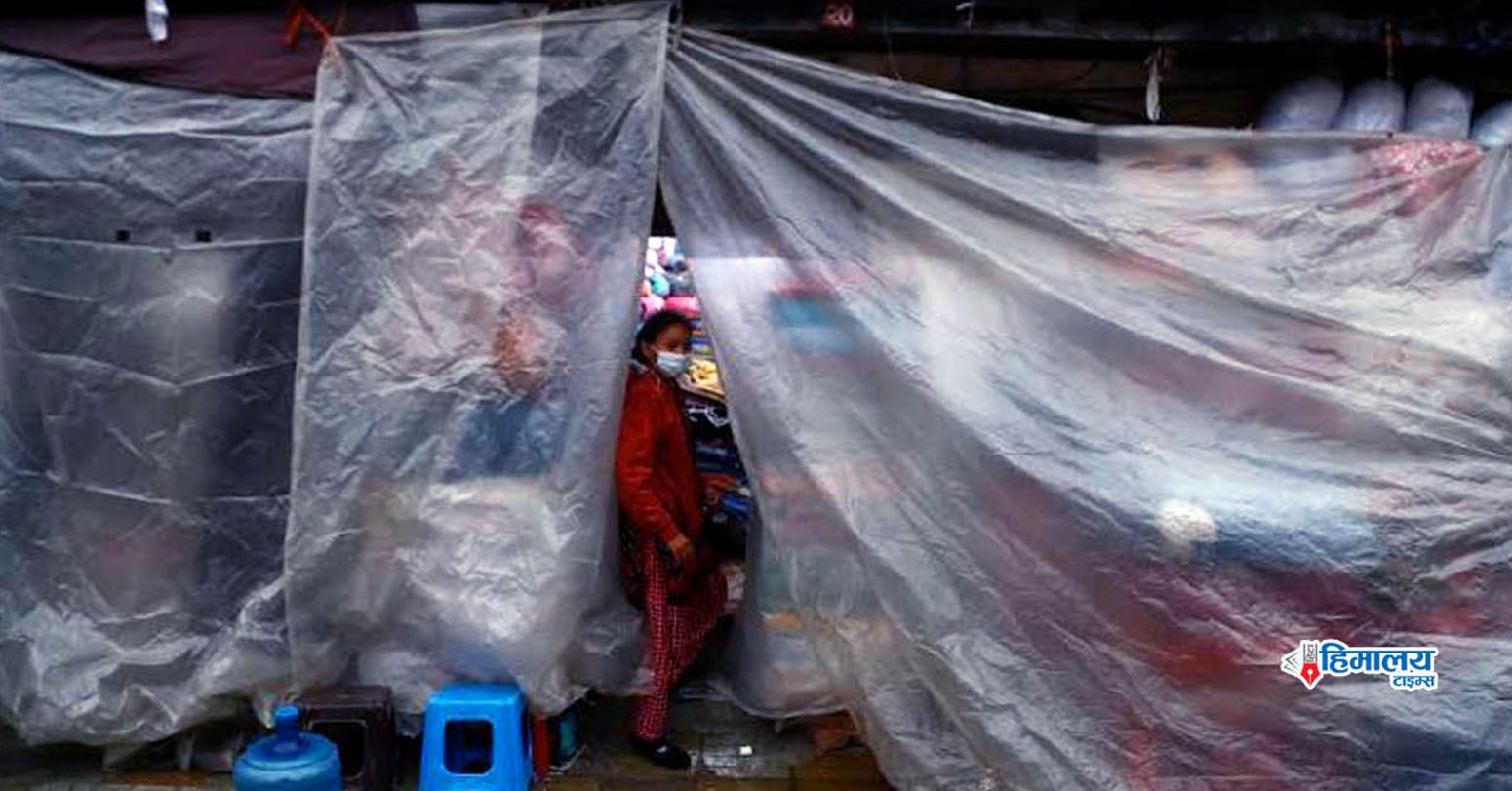
Parliamentary politics and democracy were practiced in the Sanskrit hostel. The General Assembly, which elected one person, was held prior to the Legislative Assembly elections, which were held in the Sanskrit hostel. The Legislative Assembly also elected the Speaker. The Himachal area, Gorkhali area, Pandit area, and Paschimanchal area were the four different areas in the hostel. Each area had four elected representatives who made it to the Legislative Assembly. There was a president with executive authority, a speaker, and other required ministers, such as the minister of education, the minister of food, the minister of newspapers, etc.
The library was excellent. There was a strong reading culture. The education minister was in charge of the radio, which served as the information medium. The magazine contained Indian publications such as Navbharat Times, Indian Express, and Hindustan Times, as well as Nepali daily and weekly newspapers that were accessible in the capital. There were literary magazines like Kadambini and Navneet. Madhuparka, Ruprekha, and others were also retained. Other publications were also available. Study sessions were carried out daily. The hostel had a unique character.
In the general assembly, there would be lengthy discussions. The ministers had to oversee all matters of eating, lodging, playing, and studying, and there would be nuanced and thoughtful discussions on a wide range of internal concerns. If there was disagreement on any matter, the student affairs committee would meet, followed by the Legislative Assembly and, if that was insufficient, the general assembly. The conflict between the East and the West was one of the worst practices there. Those from Solu, Okhaldhunga, Bhojpur, Sindhupalchowk, Sudupaschim, Gulmi, Arghakhanchi, Palpa, and Lamjung led the East, while those from Tanahun and Dhading led the West. There weren't many Akhil friends, and they lived near the East. There would occasionally be a terrible fight.
There were arguments about the vegetables' lack of flavor, the delayed delivery of the newspapers, and the absence of the goat, curd, and pickles during Dashain and Tihar. The supervisor would suffer if the teacher who came to teach in the morning and evening did not arrive on time, if there was electricity cut, and if the contractor did not supply good rice. Following such events the students would even harass and humiliate the supervisors. Scholars like Professors Beni Madhav Dhakal, Shri Krishna Acharya, and Bishnu Raj Atreya were active during my time. We witnessed their humiliation. Some of our friends avoided such arguments.
A group of students did something really horrible. Four or five of them would go to drink alcohol after eating rice, return only ten minutes before the main gate closed, throw up, and generally cause trouble. Not even the supervisor could keep them under control. Because of a few individuals, the area where eminent academics resided was becoming polluted. Many of these students were known to have participated in the riots until much later. The current situation is unknown.
The names that immediately come to mind while writing are Jayaraj Acharya, Narahari Acharya, Narendra Raj Poudel, Chudamani Khanal, Sharad Chandra Pandit, Sthira Prasad Parajuli, Dhananjay Timalsina, Siddharaj Ojha, Daibadatta Koirala, Rishikesh Upadhyay, Govinda Ghimire (Jorpati), Koshraj Neupane, Shiva Adhikari (established poet and writer), Dhundiraj Dahal, Brataraj Acharya, Prayagraj Vasishtha, Ramesh Adhikari, Toyraj Nepal, Durga Prasad Aryal, Hemchandra Nepal, Tulsi Gautam, Taranath Gautam, Badri Dahal (Bhashmasur), Leelanath Dahal, Keshav Adhikari (Rautahat), Lekhnath Acharya, Shiva Kumar Gautam, Bhavani Parajuli, Govinda Bhattarai (Khotang), Hemchandra Nepal, Ramesh Bhattarai, Keshav Gautam, Shivraj Sapkota, Badri Pokhrel, Mohan Timalsina, Narayan Pokhrel, Buddhi Acharya, Har Bhattarai, Ghanashyam Upadhyay, Yagnanidhi Dahal, Gopal Adhikari, Govinda Subedi, Atmaram Ghimire Raju, Bhupahari Poudel, Keshav Pahadi, Indramani Adhikari, Shyam Neupane, Bishwanath Gautam, before or after reaching college and a little later Tej Prakash Pandit, Shree Bhakta Acharya, Sharad Chandra Acharya, Raghunath Adhikari, Sagarmani Parajuli, Netra Prasad Neupane, Shukdev Neupane, Mukundaraj Dahal, contemporaries Krishna Prasad Bhattarai, Shankar Adhikari, Homaprasad Grihasthi, Harikrishna Poudel, Prem Prasad Gaire, Bharat Poudel, Damodar Timalsina, Trivikram Poudel, Krishna Gyawali, Krishna Poudel (Dhading) Gyan Chandra Acharya, Khilanath Bastakoti, Nanda Krishna Joshi, Shambhu Koirala, Krishna Chandra Acharya, Tikaram Bhattarai, Phanindra Nepal (currently Greater Nepal campaigner) Suryamohan Kafle, Sudarshan Subedi, Shambhu Pandit, Hari Subedi, Ramnath Kafle, Rameshwor Kafle, Badrinath Adhikari (Dhading) Ganesh Nepal, Yadu Adhikari Gorkha, current famous writer, strong campaigner of Nepali language poet Baldev Adhikari (Dhading) Nooreshwor Adhikari, Rajendra Dahal, Nanda Prasad Rijal, Rudralochan Acharya, Madhavraj Pandey, Ram Prasad Adhikari, Ram Prasad Nepal, Gunaraj Dahal, Pushpanidhi Dahal, Hemanidhi Nepal, Shambhu Pandit.
The brothers Giriraj Khatiwada (Sunsari), Govinda and Tanka Neupane (Sindhupalchowk), and Hom Prasad Bhattarai (Ramechhap) were also very helpful and strong despite being employees. Arunodaya, the hostel's historical literary magazine, had ceased publication for a while. It was closed at times and published at other times. When I started living in the hostel, it was closed, but because of the Student Affairs Committee's efforts, it was reopened and ran for a while. The Sanskrit hostel's residents were not proficient in parliamentary practice because of this. The fact that debate, poetry, elocution, sports, and essay competitions were occasionally held made the Sanskrit hostel extremely conscious.
Books were given away as prizes in every competition, from the first to the consolation. At the proper times, academics such as Rishikesh Shah and Yadunath Khanal also gave talks. The literary program used to attract writers and poets such as Madhav Ghimire, Mohan Koirala, Balkrishna Sam, Siddhicharan Shrestha, Vasudev Tripathi, Taranath Sharma, Jagannath Tripathi, Surya Bikram Gyawali, Hemang Raj Adhikari, Kedarman Byathit, Shyamdas Vaishnav, Daivagyaraj Neupane, and Kedar Neupane. The Sanskrit Hostel remained a hub of parliamentary politics and a living example of consciousness even during the independent era. Numerous youths who attended the hostel participated in the democratic and communist movements, and some even rose to the top levels of authority.
The highest level of administration was made up of the hostel's residents. Many people in the nation's government service appeared to be strong until later after passing the public service exam. The majority of the secretaries were either Valmiki students or residents of the Sanskrit Hostel, and the number is still growing. As secretaries of the Government of Nepal, Tulsi Bhattarai (Okhaldhunga) and Vijayaraj Bhattarai (Tanahun), who were highly involved in the democratic movement, were discussed until later. The Jayatu Sanskritam movement's heroes, Purna Prasad Brahman, Rajeshwor Devkota, Padmashankar Adhikari, Kashinath Gautam, Shreebhadra Khanal, Kamalraj Regmi, Achyutraj Regmi, and Gokarnaraj Shastri, are well-known.
Ramchandra Paudel, a graduate of Valmiki Vidyapeeth, became the president. The number of ministers is the same. My student, Badri Pandey, is a minister at the time these lines are written. Some individuals—including Homnath Dahal, Siddharaj Ojha, Chiranjivi Wagle, Narahari Acharya, Prof. Bidur Prasad Poudel, Ghanashyam Poudel, and Krishna Prasad Sapkota—became ministers or members of parliament.
The poets Lekhnath Poudel, Rashtrakavi Madhav Ghimire, Dr. Vasudev Tripathi, Pitambar Dahal, Shyam Dahal, Daivagyaraj Neupane, Tank Neupane, Kaviraj Neupane, Kedar Neupane (poet), Chetonath Gautam, Ganesh Vishwa, and Dr. Bhupati Dhakal, among others. Many individuals are well-known in the field of journalism. The first person from the hostel to achieve prominence in journalism was most likely Homanath Dahal, who became Minister of the Government of Nepal after 2046 BS. He has even advanced to the position of diplomat. Prominent figures include Prof. Yadunath Khanal, Jayaraj Acharya, and Gyanchandra Acharya. Dhan Prasad Pandit was recently appointed ambassador as well.
The 2017 independent party scandal has severely tainted the Tindhara Sanskrit Hostel, which has been the birthplace of the democratic movement since the Jayatu Sanskritam (2004 BS) uprising. While Vachaspati Devkota and Ghanshyam Poudel were active in the communist movement, Pitambar Dahal, Premnath Aryal, Ram Prasad Bhattarai, Min Kumar Dahal, Homanath Dahal, and Chiranjeevi Wagle were dedicated to democracy. Even after achieving government positions, some so-called Royal Communists continued to ruthlessly oppose the democratic movement by, for example, entering the courts. As a result, actions had to be done in terror. Dirty work is also being done inside by the government machinery, particularly by those who get weekly or monthly allowances from the nearby Bagmati Zonal Office. Working as a supervisor in the hostel from 2042 until the end of 2043 gave me the opportunity to witness this firsthand.
I stayed in the Sanskrit hostel from 2031 to 2039, Jestha. In the meantime, many talented students from different fields had already attended, including Rajendra Dahal, Madhavraj Pandey, Sthaneshwor Timalsina, Bheshraj Panthi, Yadupanthi, Tej Prasad Poudel, Jagadishwar Adhikari, Mohan Sapkota, Shambhu Durgam Niraula, Govinda Bhandari, Nawaraj Kattel, Dhruv Bhattarai, Bishnu Pandey (Bajura), Gyanmani Nepal (Dailekh), Dhruv Gautam (Jevanpur), DP Aryal, and Sunil Dhakal. The now-famous and established poet Tirtharaj Adhikari also came from Gorkha. Those who had finished grade eight or had advanced past the secondary level would come to study at Shadananda Sanskrit Secondary School Dingla, Samavi Dang, Dharan Sanskrit Secondary School, Matihani, Janakpur, Kalaiya, Gorkha, Lamjung Panini Samavi, and Kaski Tanahun.
I still remember Ramhari Acharya, Dhruv Ghimire, and Ramesh Bastakoti, despite having a lot of friends from Kalaiya. After reaching a certain level, some would depart from Banaras as well. Stated differently, the Sanskrit Hostel served as a unique gathering spot for education. For whatever reason, Bir Shamsher founded the Sanskrit Hostel in 1942 BS, but it is remembered as the cornerstone of modern Nepal's development and transformation as well as its educational awakening. To be continued…
This is a translated version of an excerpt from Prof. Purushottam Dahal's unreleased book "Smriti Parikshya." Prof. Dahal is the Editor-in-Chief of the Himalaya Times National Daily.


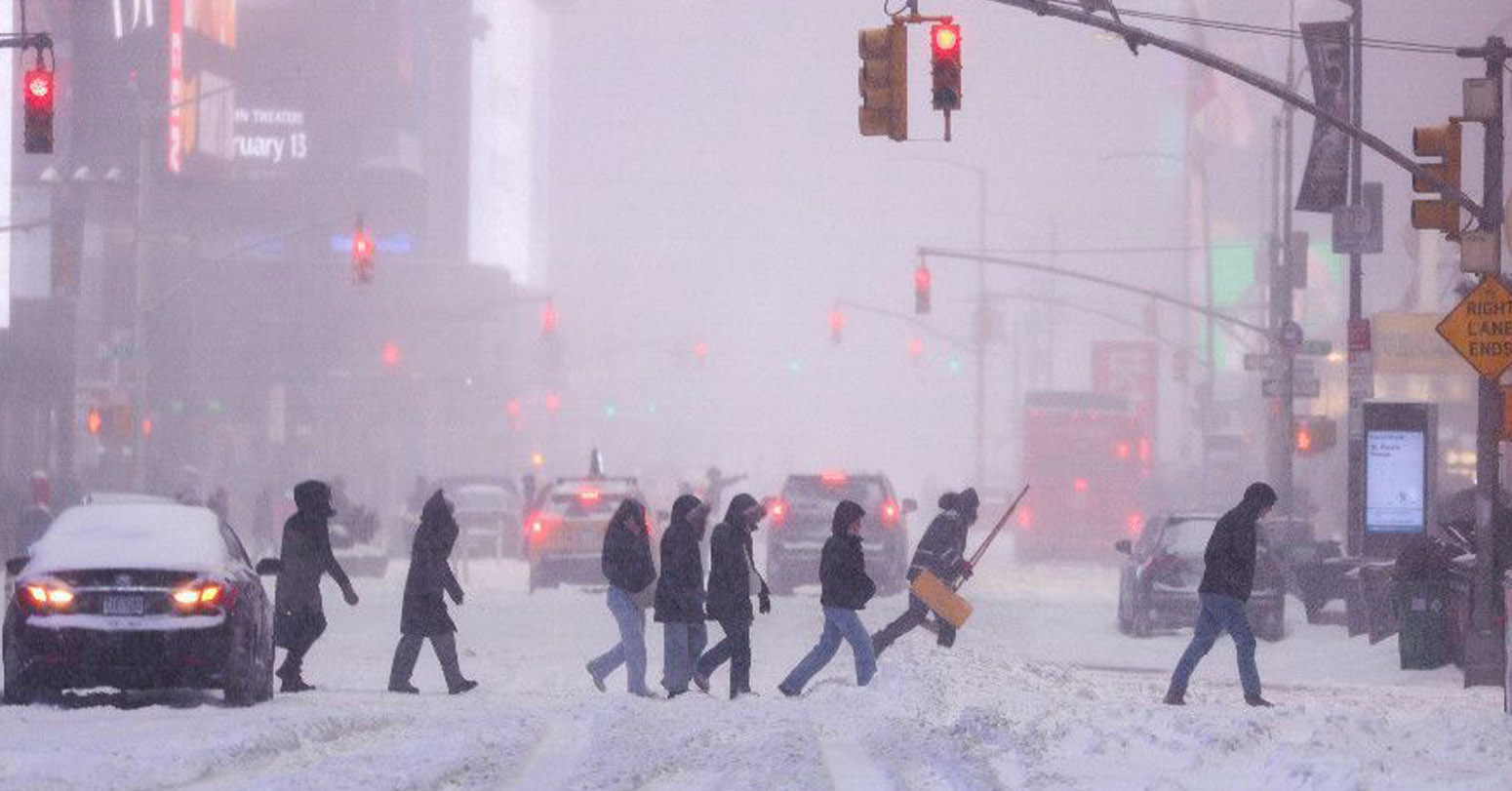




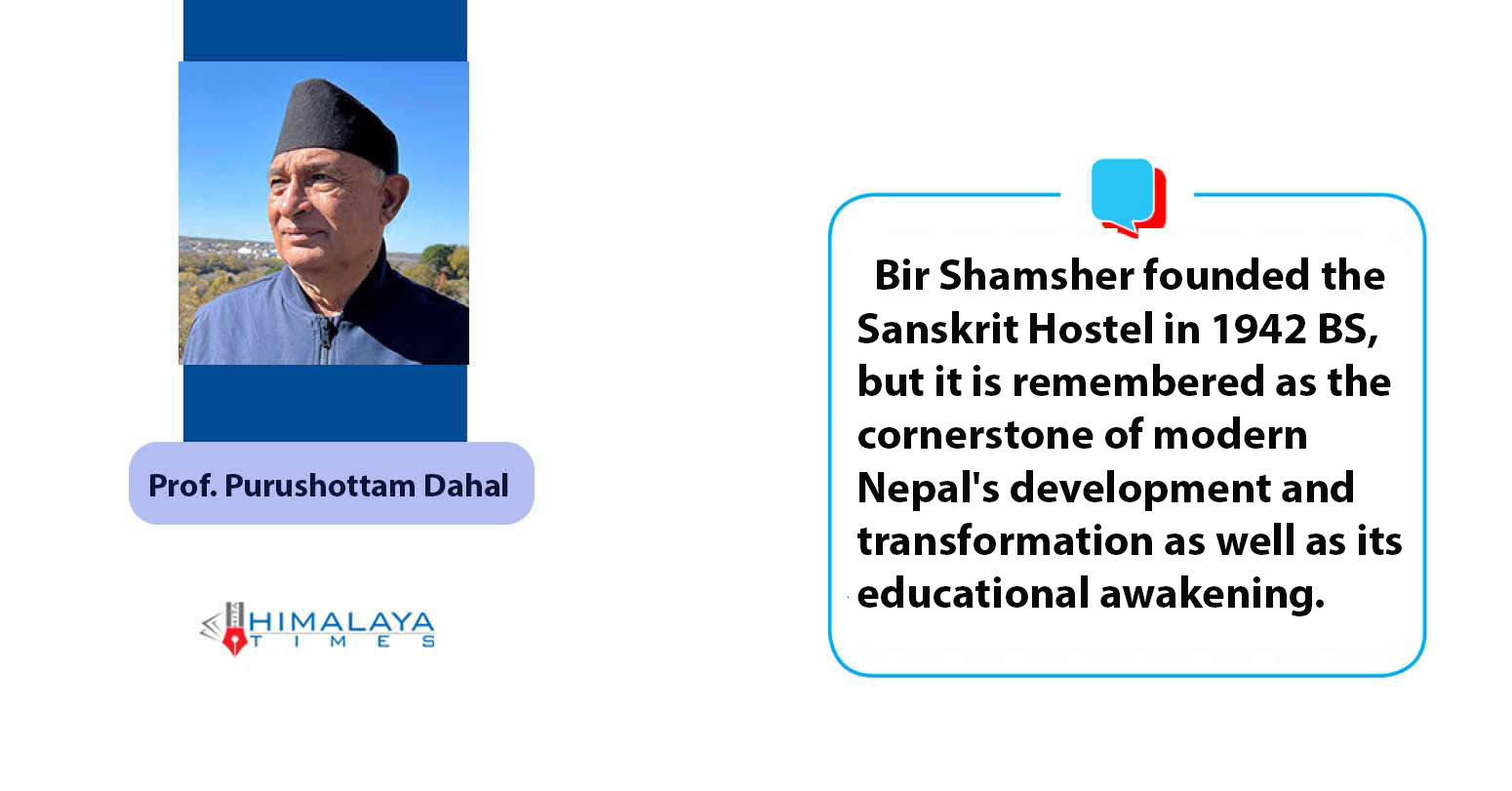







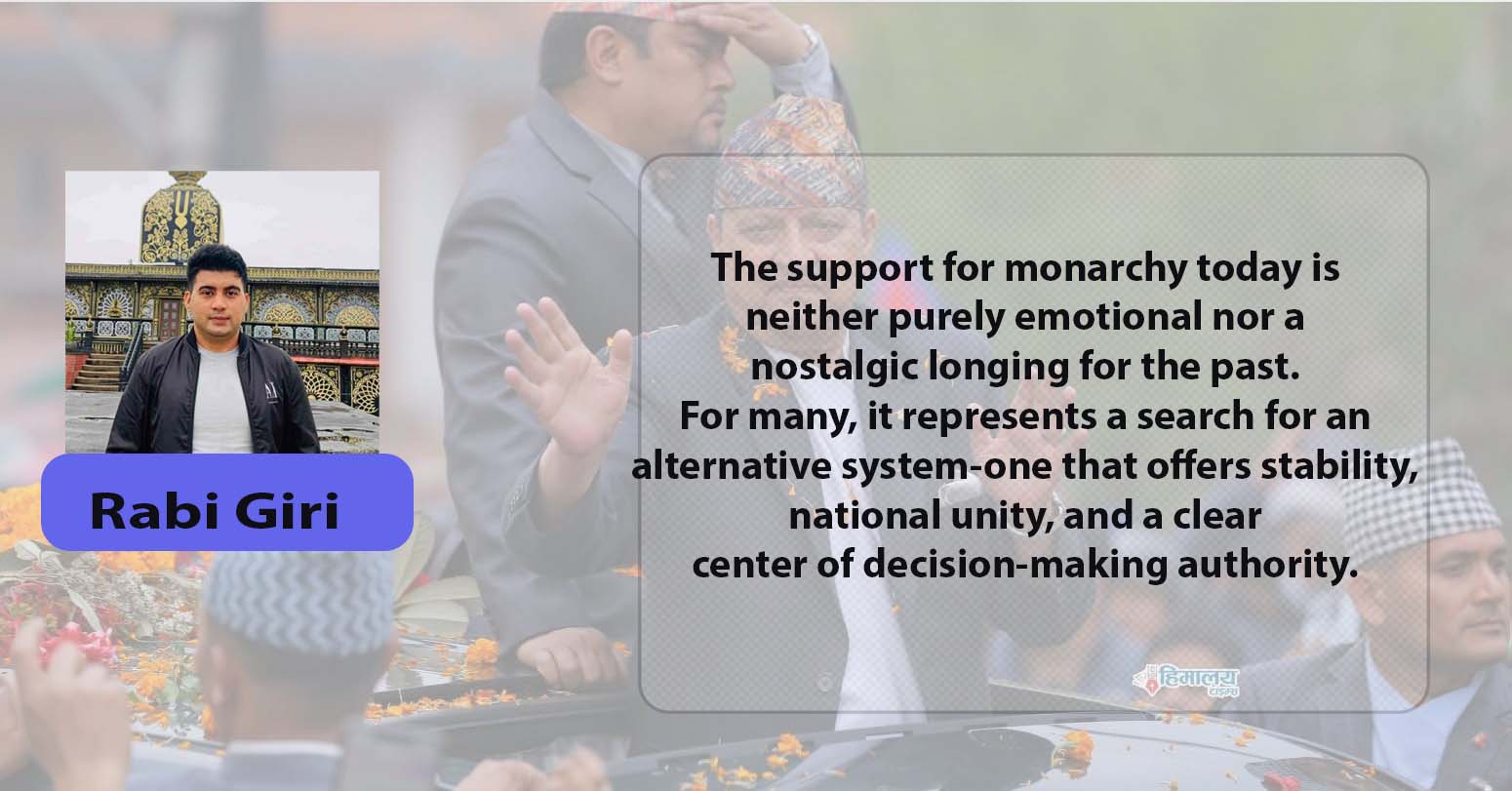

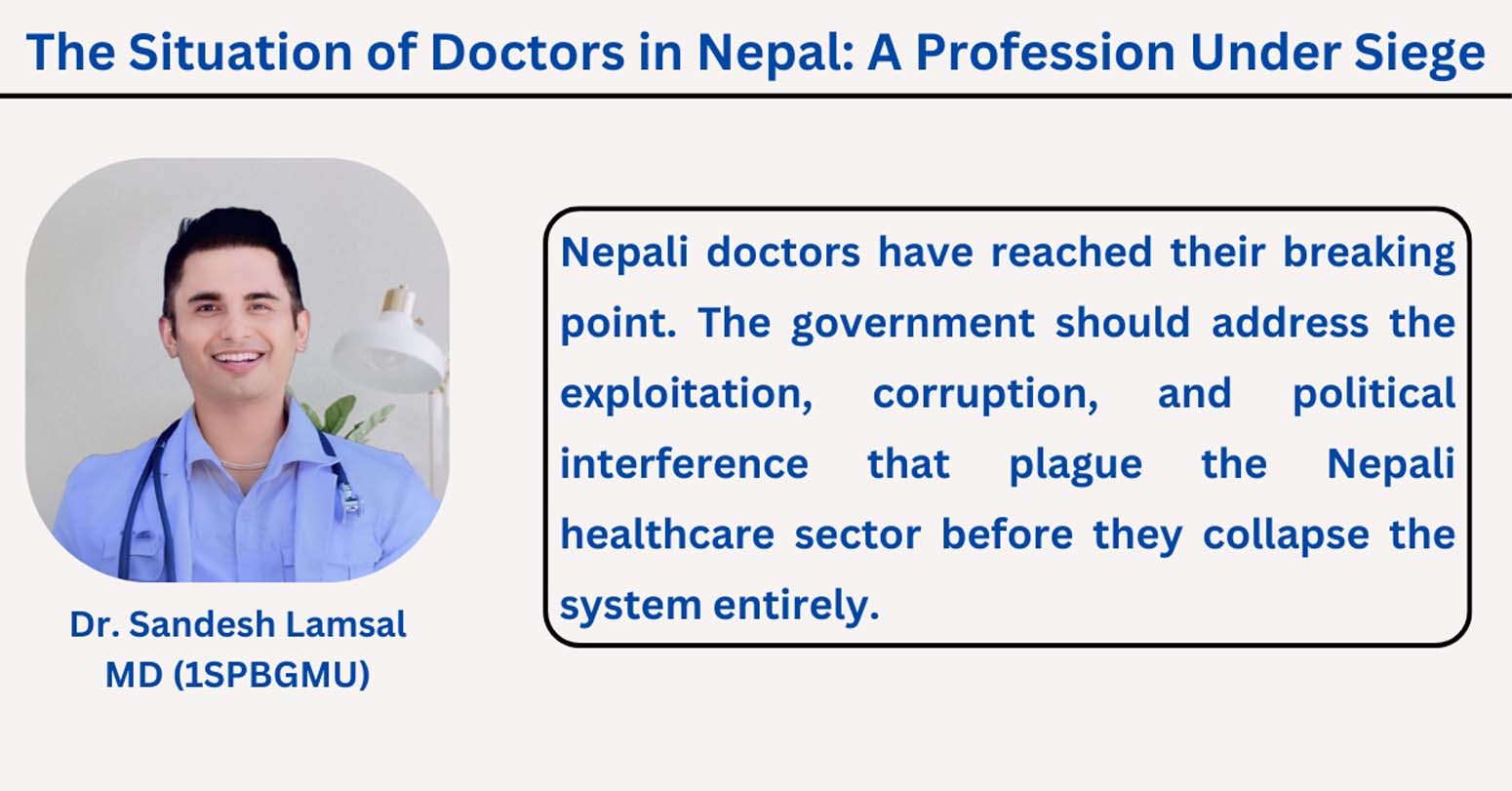

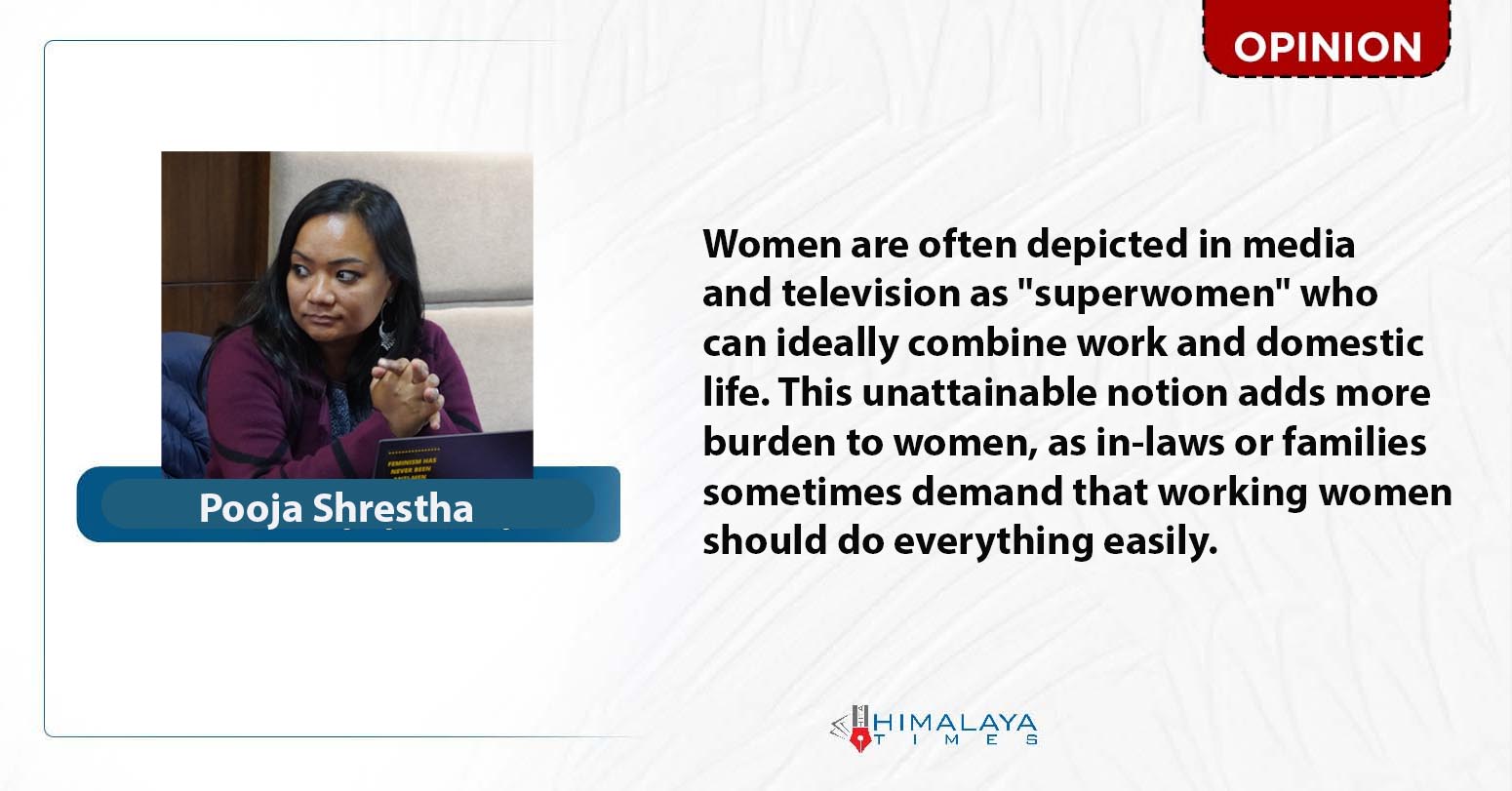
Middle-aged man spends millions to
Dr. Dharam Raj Upadhyay: Man
Children, Greatest Victims Of Sudan’s
Breathing The Unbreathable Air
Comprehensive Data Protection Law Critically
Gender Differences In Mental Healthcare